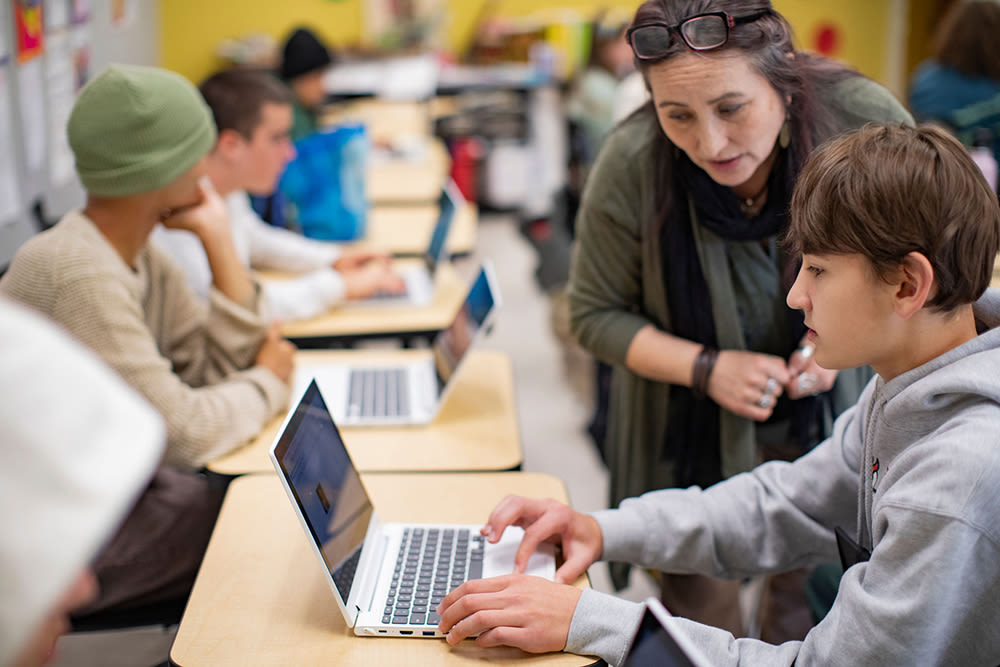Building Empathy in the Digital Era

In a world where parents and educators are increasingly challenged to find solutions to mitigate the harmful impacts of students’ technology use, Waldorf Education’s century-old philosophy is more relevant than ever.
Educational researchers know that children learn best from meaningful interactions with peers, teachers, parents, and other adults, so the student experience at a Waldorf school centers on relationships and human connection. As a result, Waldorf graduates are empathetic, communicative individuals with the tools to thoughtfully regulate the role of technology in their lives, which empowers them to connect deeply and authentically with the people around them.
Many schools nationwide are adopting phone-free policies, a practice Waldorf schools have championed for years. Waldorf’s conscious approach to technology prioritizes human relationships at every developmental stage, a strategy now supported by brain research highlighting the benefits of limited technology exposure.
Early Childhood
The youngest children are naturally reliant on healthy adult relationships. Though busy parents may be tempted to use a device to occupy their young child, the American Academy of Pediatrics (AAP) and the World Health Organization (WHO) recommend strict limits on screen time for young children. Waldorf Education embraces this approach by providing children with activities like imaginative play, movement experiences, and purposeful work that require students to interact with the people around them, contributing to healthy social and emotional development. With this approach, children’s innate resilience and curiosity remain intact throughout their development.

Elementary & Middle School
As children progress through the grades, Waldorf emphasizes the power of imagination through an artistic approach that encourages students to create their own images and ideas rather than relying on AI or pre-made concepts from the media. Empowering children to imagine solutions and generate creative ideas builds confidence and sets children up to become the innovative thinkers of the future. In middle school, Waldorf educators introduce technology in the classroom through programs like Cyber Civics, which provides direct instruction on safe and ethical technology use.

High School
In high school, Waldorf Education focuses on developing compassionate, original thinking capacities through a rigorous inquiry-based curriculum. As students’ unique talents and ideas take shape, intentional access to technology during the school day allows for more experiential learning, imaginative thinking, and human connection. Here, technology is introduced as a tool to help students achieve their specific goals effectively and purposefully. Without the distraction of cell phones or the daily pressures of social media, adolescents in a Waldorf high school stay engaged with their learning and connect with their teachers and each other as they do the important work of becoming who they are and preparing for their futures.

Waldorf Education’s thoughtful integration of technology ensures that students grow into well-rounded, intelligent, and capable adults. As teachers, parents, and students navigate an increasingly digital world, the Waldorf approach offers students the opportunity to become active thought leaders and hands-on initiators in a world that is kind, humane, and united.
Learn more or schedule a tour at Portland Waldorf School or Cedarwood Waldorf School.
